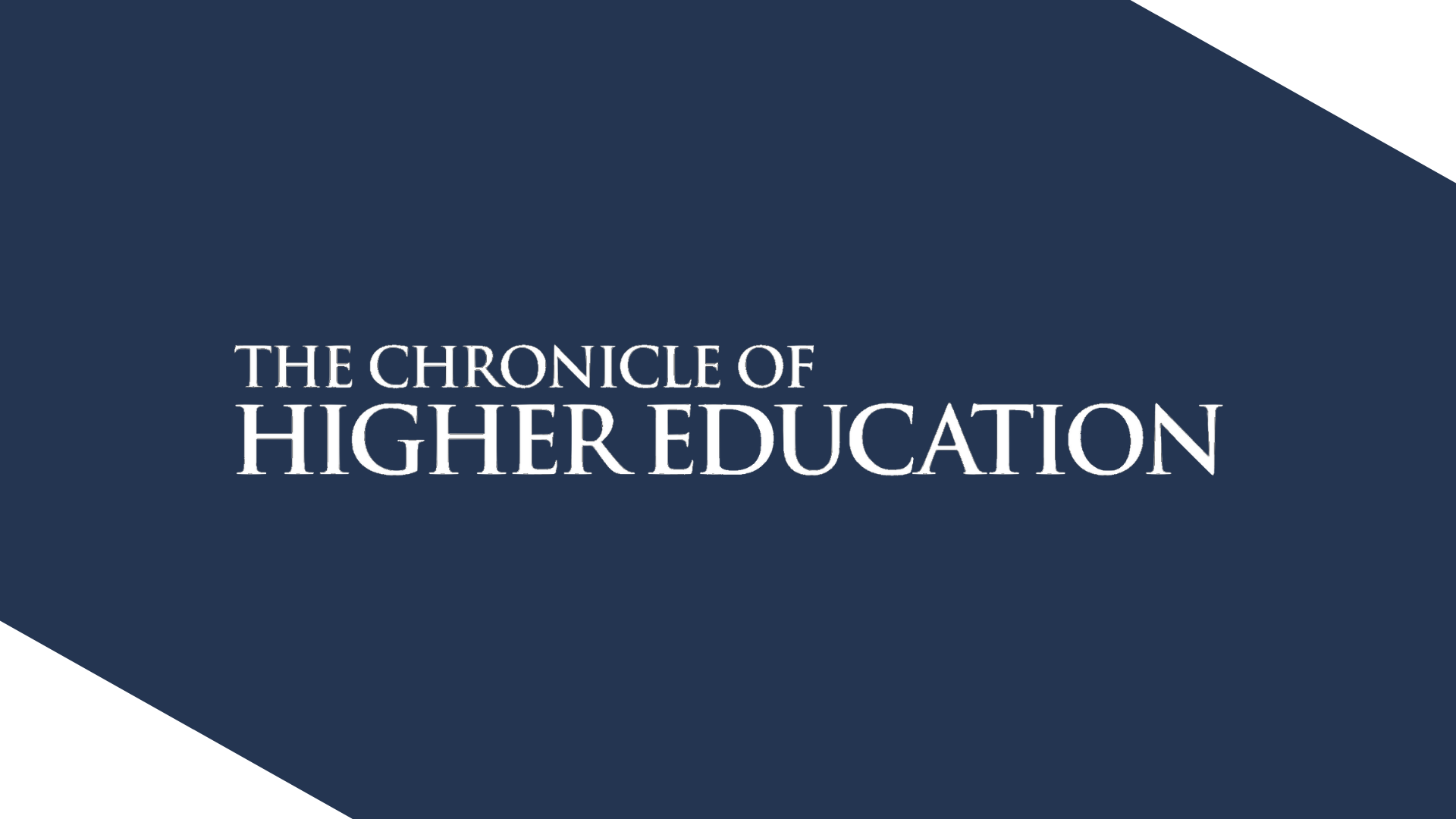"Yes, You Can Request More College Financial Aid—Even During A Pandemic"
“I wish I had this when I started college after I had my son.” The quote is scribbled in the margins of my focus group guide, but it still grabs hold of my heart when I review my notes. In the five months before the COVID-19 pandemic, I led over 20 focus groups with college students, financial aid officers, and student advisors. Even then, financial stability was tenuous for millions of college students.
“Students can appeal their financial packages for a number of reasons, and the Department of Education provides guidance to financial aid counselors annually. At the Seldin/Haring-Smith Foundation, we wanted to provide a similar resource for the 18.8 million Americans who apply for college financial aid each year. For the past six months, we have collaborated closely with 18 leading higher education associations, advocacy organizations, and colleges to build SwiftStudent: a new free, digital resource that helps students request changes to their college financial aid packages.”
Read more in Forbes.
"Financial-Aid Appeals Are Mysterious. This Tool Was Built to Simplify Them."
“Financial-aid awards land with the thud of finality. Any student peering at a screen full of jargon and financial figures might wonder how to even go about asking a college to reconsider its offer.
“A new online tool called SwiftStudent was designed to help them do that. The free service, available to any student receiving federal aid, leads users through the ins and outs of requesting aid adjustments. The website provides appeal-letter templates for various situations. Say, a student loses housing. Or a medical crisis hits. Or a parent gets laid off. Many families are experiencing such hardships because of the Covid-19 crisis.
“The Seldin/Haring-Smith Foundation created the tool with help from students, financial-aid officers, and college counselors, as well as from experts at the National Association of Student Financial Aid Administrators, the National College Attainment Network, and the Hope Center for College, Community, and Justice, among several other organizations.”
View the full article in The Chronicle of Higher Education.
"Students Need More Financial Aid Than What They Applied for. A Free New Tool Can Help."
“Called SwiftStudent, the website walks students through the documents and forms they need in order to submit a financial aid appeal to their institution’s aid office. It includes information about the different situations in which a student is eligible, and includes templates they can use to generate an appeals letter.
“In most cases, financial aid recipients are unaware that they can appeal for extra support, according to Abigail Seldin, co-founder and CEO of the Seldin/Haring-Smith Foundation, which helped to produce SwiftStudent. ‘Most students think that the offers they get are immutable,’ she says. Oftentimes, and especially during the current pandemic, ‘the financial aid package most students will get does not reflect their current circumstances, because the financial information they submitted will not be relevant anymore,’ she adds.”
View the full article in EdSurge.
"Colleges Brace for Student Aid Appeals as Virus Slashes Incomes"
“A new online tool, SwiftStudent, offers financial aid offices’ advice for students appealing for financial aid, said Abigail Seldin, CEO of the Seldin/Haring-Smith Foundation, which created the tool.
“‘Our goal is to give students the information they need to advocate for themselves,’ she said.”
View the full article in Bloomberg.
"New website launches to help college students appeal financial aid decisions"
“A non-profit foundation today is releasing a new online tool that helps college students petition their institutions for additional financial aid based on changes to their circumstances such as a job loss or medical crisis.
The new website, SwiftStudent, will guide college students on how to file appeals of their financial aid awards using more than a dozen different types of templates.
The tool was developed by the Seldin/Haring-Smith Foundation with the backing of a range of groups involved in college financial aid issues, including the National Association of Financial Aid Administrators, the National College Attainment Network and Reach Higher, the higher education initiative started by former first lady Michelle Obama.”
View the full article in Politico Pro.
"ICE has run facial-recognition searches on millions of Maryland drivers"
Read about SHSF grant’s to the Center on Privacy & Technology at Georgetown Law in The Washington Post:
“U.S. Immigration and Customs Enforcement officials have been permitted to run facial-recognition searches on millions of Maryland driver’s license photos without first seeking state or court approval, state officials said — access that goes far beyond what other states allow and that alarms immigration activists in a state that grants special driver’s licenses to undocumented immigrants.”
“‘It’s a betrayal of immigrants’ trust for the [state] to turn around and let ICE run warrantless searches on their faces,’ said Harrison Rudolph, a senior associate at Georgetown University Law School’s Center on Privacy and Technology. ‘It’s a bait-and-switch. … ICE is using biometric information in the shadows, without government notice or public approval, to hunt down the most vulnerable people.’”
“Maryland, Rudolph said, appears to be the only state where ICE officials anywhere in the country can run a search as long as they have access to the National Crime Information Center, a widely available law-enforcement database maintained by the FBI, which he called ‘an unprecedented level of access for federal agents — including ICE deportation agents.’”
View the full article online at The Washington Post.
"ICE has access to Maryland driver’s license records. State lawmakers want to limit it."
Read about SHSF grant’s to the Center on Privacy & Technology at Georgetown Law in The Baltimore Sun:
“Harrison Rudolph, a senior associate at the Center on Privacy & Technology at the Georgetown University Law Center, which has tracked facial recognition programs nationwide and backs the bill, said a few other states have such databases and deal with ICE requests for data, but none appear to have provided such sweeping access as Maryland.”
“‘Maryland allows any federal law enforcement officer with a particular type of credential to log directly into the facial recognition system,’ he said. ‘That’s an unprecedented level of access.’”
“Couple that access with facial recognition software — which has been criticized for being error-prone, particularly when assessing people of color and women — and there is reason for concern, Rudolph said.”
View the full article online at The Baltimore Sun.
"CDC recommended that migrants receive flu vaccine, but CBP rejected the idea"
SHSF grant’s to The Brookings Institution discussed in The Washington Post.
“A new report from the Brookings Institution warns that risk factors such as lackluster sanitation, overcrowding and poor nutrition are creating a “perfect storm” of conditions in CBP detention facilities that could lead to severe outbreaks of the flu and other communicable diseases. The report recommends vaccinating detained migrants as a way of limiting outbreaks.”
View the full article online at The Washington Post.
“The risk of outbreak rises as immigrant detainees are denied vaccinations”
John Hudak and Christine Stenglein of The Brookings Institution share the findings from their SHSF grant in The Dallas Morning News.
“While flu shots will protect countless Americans from the health and life effects of influenza this winter, we explain in new analysis at the Brookings Institution why denying vaccinations to those held in the nation’s immigration detention facilities puts at risk the health of detainees, government employees and the communities surrounding detention facilities.”’
View the full editorial online at The Dallas Morning News.
"Humanitarian crisis at the border is a concern for states as much as feds"
SHSF grant’s to The Brookings Institution was featured in The Las Vegas Sun.
“State and local officials can and should play an important role in addressing the humanitarian crisis that is America’s treatment of immigrant detainees.
So writes John Hudak of the Brookings Institution in an insightful paper that should be required reading for Nevada leaders at all levels.”
View the full article online at Las Vegas Sun.
"California's new law allowing college athletes to be paid is a step in the right direction"
“Student-athletes are envied by their peers, basking in national attention, and bound to make millions in professional leagues post-graduation. At least that’s what the public imagines. Reality is often far different.
In most sports, the odds of turning pro are less than 2%, and while in school student-athletes are often pulled away from other college opportunities. In fact, college athletes on scholarship are doubly disadvantaged: the NCAA forbids them from accepting compensation for their athletic efforts, even while their team obligations render other employment opportunities impossible.”
Read more on Salon.com.
"Final Four is a time to challenge college's true cost"
“Against the backdrop of recent college admissions scandals and the onslaught of March Madness, the staggering amount of money in college sports has never been more apparent. Everyone is making money -- except the players, of course.
For example: according to data from the Department of Education and USA Today, Duke makes more than $33 million annually on NCAA basketball-related revenue, and Coach Mike Krzyewski (Coach K) earns $8.89 million a year. In contrast, Duke's star player, Zion Williamson, is capped at $75,370, the cost of attendance at Duke, plus incidentals. All but $3,466 of this goes right back to Duke for tuition, room and board.”
Read more in CNN.
"Why did it take a celebrity scandal to talk absurd college costs?"
“The new admissions scandal is another sign of a badly broken system. For decades, fearful parents have invested in their children (test prep tutors! “Volun-tourism” to poorer countries!) with their hopes pinned on admission to just a few of our country’s fine colleges and universities. These parents will jump through every hoop — and spend every dime — to stack the odds in favor of a child’s admission to an elite school. The rich and powerful, celebrities among them, are falling for this nonsense.
Beyond being a study in bad parenting, these folks are ignoring two critical facts: There are many great colleges in America, and attending a rich or well-known school matters most if you come from an underprivileged background.”
Read more in The Philadelphia Inquirer.













